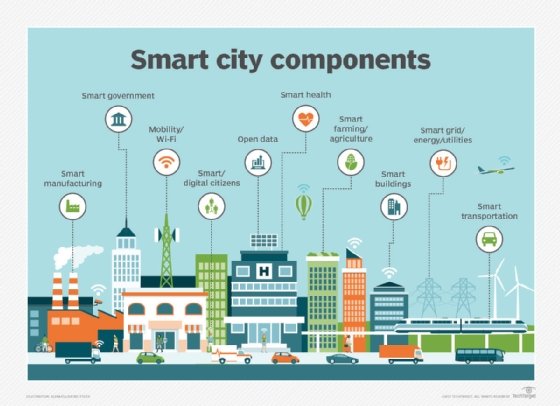
Pioneering the Future: Introduction to Smart Cities
Smart cities are at the forefront of urban development, ushering in a new era of connectivity and efficiency. The concept of smart cities development encompasses a range of innovations aimed at enhancing the quality of life for residents and optimizing urban infrastructure. As cities evolve into interconnected hubs, the vision is to create more sustainable, technologically advanced, and citizen-centric environments.
The Core Components of Smart Cities
At the heart of smart cities development are interconnected technologies that form the backbone of urban efficiency. These include the Internet of Things (IoT), data analytics, artificial intelligence, and advanced sensors. The integration of these components enables real-time data collection, analysis, and decision-making, laying the foundation for a more responsive and adaptive urban landscape.
IoT and Connected Infrastructure
The Internet of Things (IoT) plays a pivotal role in the development of smart cities by connecting devices, vehicles, and infrastructure. From smart streetlights that adjust based on foot traffic to waste management systems that optimize collection routes, IoT creates a network of interconnected elements that contribute to resource efficiency and improved city services.
Data-Driven Decision Making
Smart cities leverage data analytics to derive meaningful insights and inform decision-making processes. The abundance of data generated by smart sensors and devices allows city authorities to understand traffic patterns, energy consumption, and citizen behavior. By harnessing this data, cities can make informed decisions to enhance public services, urban planning, and overall city management.
Sustainable Urban Planning and Green Initiatives
An essential aspect of smart cities development is the focus on sustainability. From green building designs to energy-efficient transportation systems, smart cities prioritize eco-friendly initiatives. Sustainable urban planning aims to reduce environmental impact, conserve resources, and create resilient cities that can adapt to the challenges of climate change.
Smart Mobility and Transportation
In the realm of smart cities, mobility takes center stage. Advanced transportation systems powered by technology offer citizens efficient and sustainable commuting options. This includes smart public transportation, electric vehicle infrastructure, and intelligent traffic management systems. The goal is to create a seamless and interconnected transportation network that reduces congestion and enhances overall mobility.
Citizen-Centric Services and Engagement
Smart cities are designed with citizens in mind, aiming to improve the overall quality of life. Citizen-centric services include digital platforms for accessing public services, smart city apps for real-time information, and community engagement initiatives. By fostering a sense of inclusivity and participation, smart cities empower residents to actively contribute to the development and enhancement of their urban environment.
Addressing Challenges: Security and Privacy
As smart cities evolve, addressing security and privacy concerns becomes paramount. The vast amount of data exchanged in a connected urban ecosystem raises cybersecurity challenges. Smart cities development emphasizes robust security measures and data protection protocols to ensure the safety and privacy of citizens in an interconnected environment.
The Role of Public-Private Partnerships
Smart cities development often involves collaborations between the public and private sectors. Public-private partnerships (PPPs) play a crucial role in financing, implementing, and maintaining smart city initiatives. These partnerships leverage the expertise and resources of both sectors to drive innovation and sustainable development.
Navigating the Future: Opportunities and Considerations
To navigate the future of smart cities, it’s essential to explore the ongoing opportunities and considerations in this dynamic landscape. For insights into the latest trends, projects, and innovations in smart cities development, visit Smart Cities Development. This link provides a glimpse into the evolving world of smart cities, offering valuable information for urban planners, policymakers, and citizens alike. As we advance into an era of connected futures, embracing smart cities development is not just a choice; it’s a collective journey toward building smarter, more resilient, and inclusive urban spaces.
